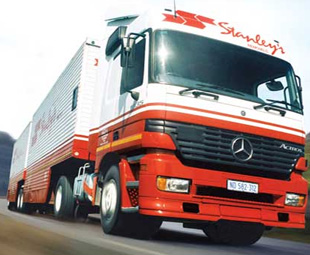Bid rigging leaves removals company in a jam

The Competition Commission of South Africa has appealed the R450 000 fine imposed by the Competition Tribunal on Stanley’s Removals for bid rigging in the furniture-removal industry. The Commission is seeking a penalty of ten percent of Stanley’s 2012 turnover for each of the eight offences it admitted to.
The Commission launched an investigation into collusion in the furniture-removal industry in November 2010. The Commission investigated a total of 69 firms, which revealed, according to the Commission, “entrenched and ubiquitous cooperation and endemic practices of collusive conduct” in the furniture-removal industry.
Most contraventions discovered were in the form of cover pricing, which occurs where bidders coordinate their tenders so that one pre-determined firm wins the bid.
The Commission issued an invitation to the firms investigated to settle with the Commission for a relatively light penalty of four percent of their 2013 turnover. Some firms took up the offer and settled with the Commission.
Stanley’s attempted to settle, but could not reach an agreement with the Commission on the amount of the fine. The matter therefore went to the Tribunal, with Stanley’s admitting to its involvement in eight instances of collusion, but challenging the Commission’s proposed fine.
Stanley’s noted that the total value of the tenders obtained through its involvement in cover pricing amounted to R129 425, of which the firm received R80 000 in turnover and approximately R8 000 profit.
The Commission’s penalty guidelines provide that, in the case of once-off bid rigging, the affected turnover for the calculation of a penalty is the value of the tender, the contract value, or the actual amount paid for the tender.
On the basis of these guidelines, together with the penalty guidance provided in the case of Aveng, Stanley’s submitted that it should be liable to pay R62 641,88. Since this appeared to be a low figure, it offered to pay R350 000.
The Commission rejected this offer and stated that its own penalty guidelines did not apply in this situation. Following the six-step Aveng approach, it asserted a fine of R1 575 715 should be imposed for each of the eight instances of bid-rigging, totalling R12 605 721,60.
Recognising that such an amount would be unsustainable for the furniture removal company, it proposed a fine of R1 700 000.
The Tribunal found that the Commission’s penalty guidelines and the Aveng six-step approach were not appropriate methods of calculating an appropriate penalty in this case, because the Aveng method applies to firms that have on-going and extended agreements and the Commission’s guidelines deal with once-off bid rigging. Stanley’s conduct did not fall into either of these categories.
The Tribunal finally issued a penalty of R450 000, approximately 3,5 percent of Stanley’s turnover. It stated in its reasons that the fine should be in line with the settlement agreements of other furniture companies, such as Stanley’s co-accused Cape Express, which was fined R645 710 for 1 744 incidents.
The Tribunal made it clear that even though the settlements by way of consent orders do not create binding precedent in opposed matters, they can be used as a yardstick for setting an appropriate penalty.
The Commission is now appealing this fine, arguing that it is too low. The Commission is clearly committed to using the level of penalties to act as a deterrent to cartel conduct, and considers that, in circumstances where the relevant firms have not settled directly with it prior to a Tribunal hearing, such firms are not deserving of any leniency in relation to the quantum of the fine.
Published by
Focus on Transport
focusmagsa



